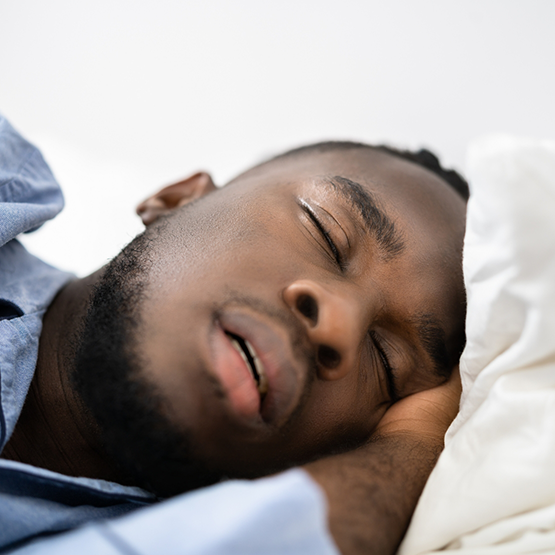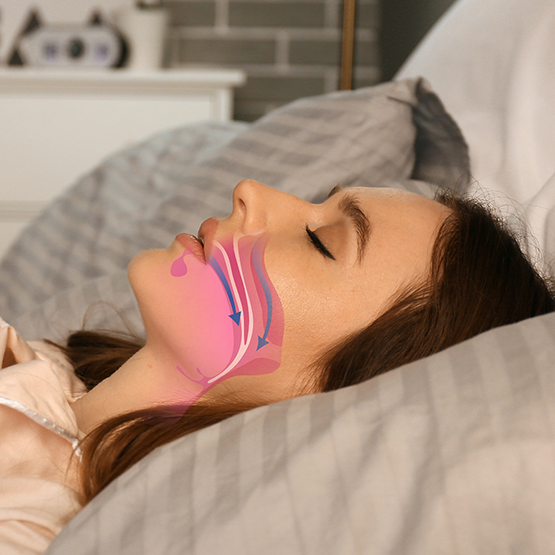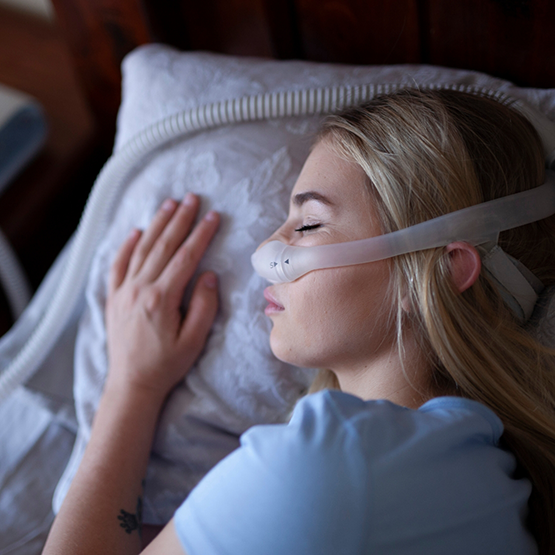What is Sleep Apnea? North Olmsted
Your Sleep Is Far Too Important to Neglect

Believe it or not, you’re somewhat lucky if you’ve been diagnosed with sleep apnea – because many individuals unknowingly have the condition, which means they aren’t aware it’s detracting from their quality of life. However, it’s not just daytime fatigue that patients with sleep apnea must worry about; serious health-related conditions like diabetes, stroke, and even an increased risk of heart attack may develop if things are left unaddressed. Our team at Ohio Dental Sleep Solutions wants to reduce your risk, which is why Dr. Ryan is here to provide a more thorough explanation of sleep apnea and what it really is. That way, when it’s time for treatment, you’re certain to notice a difference!
Why Choose Ohio Dental Sleep Solutions for Sleep Apnea Treatment?
- Sleep Dentist with Several Years of Experience
- Insurance-Friendly and Flexible Financing
- Streamlined Process for Greater Ease & Convenience
The Basics of Sleep Apnea

Sleep apnea is a chronic condition that makes it difficult, or sometimes impossible, for a person to achieve a full night of uninterrupted sleep. It occurs when a patient’s breathing stops for 10 or more seconds at a time, and these episodes can occur hundreds of times in a given night. When the breathing pauses, the body is jolted awake, and the individual is often left gasping or choking on air as they try to normalize their breathing.
This continuous problem, which is often referred to as obstructive sleep apnea (OSA), can lead to some pretty serious symptoms that detract from a person’s quality of life, including chronic daytime fatigue, memory issues, irritability, and more. When the body and the brain cannot complete a full sleep cycle each night, the repercussions extend to the following day, leading to a vicious cycle that only gets worse with time. Sleep apnea can even have devastating consequences on a patient’s cardiovascular and respiratory systems.
Learn More About Obstructive Sleep Apnea
What Causes Sleep Apnea?

There are numerous reasons why sleep apnea can develop; however, the two most common forms that individuals need to be aware of include obstructive sleep apnea (OSA) and central sleep apnea (CSA). OSA often refers to when the airway is too narrow or blocked, while CDA is often the cause of a neurological problem that makes it difficult for the body to breathe properly. No matter which type a person is dealing with, their sleeping position, weight, lifestyle, family history, and other factors can all contribute to the condition.
Common Sleep Apnea Symptoms

Not all sleep apnea symptoms are easy to identify, especially since many can be linked with other potential problems. However, if you or your partner notice one or more of the following, consider calling our North Olmsted office for help:
- Loud/chronic snoring
- Silent pauses in breathing
- Choking or gasping
- Waking in the morning feeling unrefreshed
- Problems with memory and/or concentration
- Being tired during the day
- Morning headaches
- Dry mouth or sore throat/hoarseness in the morning
- Behavior/mood swings
- Waking up frequently at night to go to the bathroom
- Difficulty concentrating or remembering things
- Grinding or clenching your teeth at night
- Impotence
The Dangers of Sleep Apnea

If you want to enjoy a healthier and happier life, quality sleep is essential. It can help your physical, mental, emotional, and behavioral health! When left untreated, sleep apnea can lead to the following issues:
- Heart disease
- Stroke
- High blood pressure
- Diabetes
- Obesity
- Dementia/Alzheimer’s
- Cancer
- Depression
- Sexual dysfunction
The longer these symptoms last without proper treatment, the worse things will get; there is even a chance of premature death associated with some of these conditions.
How is Sleep Apnea Diagnosed?

A sleep study at a sleep clinic, sometimes referred to as a polysomnogram, is the only definitive way to tell whether or not you suffer from sleep apnea. Sleep studies can be conducted at a separate sleep laboratory or at home using an ambulatory sleep study device; in either case, the tests are completely painless and non-invasive.
At a sleep lab, the technicians may have you try a CPAP machine to see if that helps. If you do not want to undergo a study in a lab that may involve a CPAP, then the take-home sleep study may be the better option for you. The results are analyzed by a sleep physician who will then give a definitive diagnosis. From there, our team at Ohio Dental Sleep Solutions can help you find the treatment that is right for you!
How is Sleep Apnea Treated?

There are several ways to treat sleep apnea, with one of the most common being CPAP (continuous positive airway treatment) therapy, which involves pushing air through a mask that is worn over the nose and/or mouth to keep the airway open. At Ohio Dental Sleep Solutions, we are pleased to provide custom oral appliances as an alternative. Designed to be more comfortable, portable, and easy to use, countless patients are achieving better sleep with these simple yet effective devices!
Learn More About Oral Appliances
Benefits of Sleep Apnea Treatment

Sleep apnea may happen while you’re sleeping, but the benefits of treatment last throughout the day and the night. With treatment, you’ll find that you have more energy to conquer your daily tasks. You will be less likely to fall asleep during the day at work, in the car, or even in front of the TV when it’s time to unwind. Your overall health will also significantly improve, as your risk of heart disease, stroke, and even diabetes will be lowered. Among other things, you’ll find that you are more likely to exercise, and your lung capacity may improve. You’ll also find you’re less irritable and better able to enjoy life!
